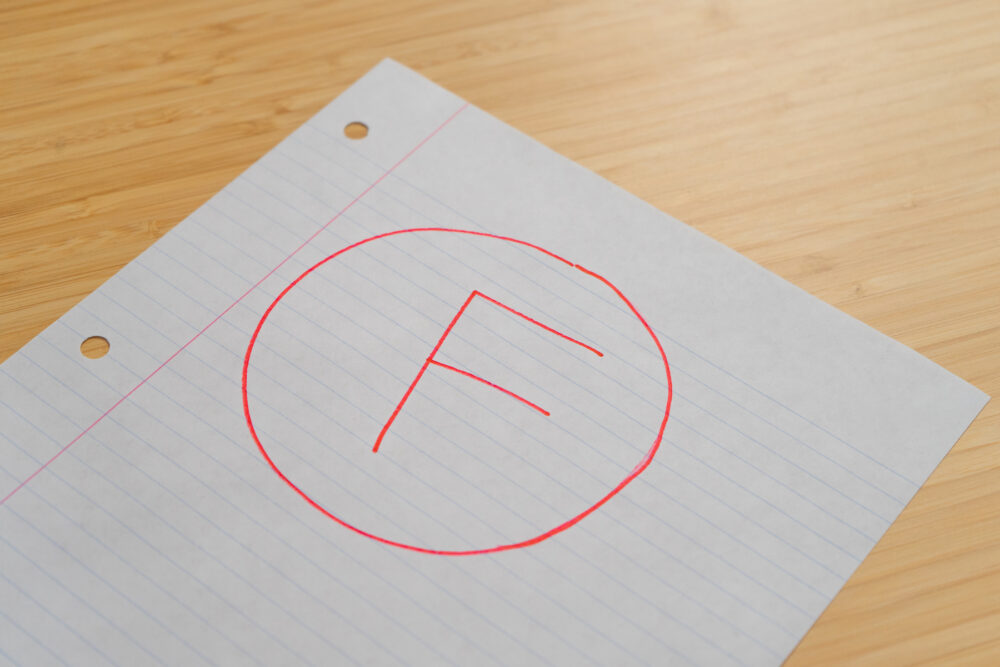
By Kyle Nguyen
You’re sitting at your computer and you’ve just finished your test with the mouse hovering over the submit button. You tense up and get a tight sinking feeling in your chest along with accelerating breathing and your mind starts racing. You’re struck with the thought of failing and you don’t know what to do. This feeling of failure isn’t a rare experience. Everyone has been affected by failure—and that’s okay.
As students, we’ve all encountered failure. Everyone is guaranteed to fail multiple times in their life no matter the person and that’s simply because no one is perfect. With the many years we’ve spent in a demanding school environment, the number of classes we’ve taken and the hundreds of grades we’ve received, failure is inevitable.
But as a society, we see failure as a bad thing. Failure doesn’t feel that that great, but it doesn’t mean we should see failing people as less intelligent simply because their score tells us to.
Failure shouldn’t be something we’re ashamed of. Just because you’re failing in a class doesn’t mean you haven’t learned anything from that subject. Some people just find it harder to bring a concept they’ve learned and apply it to paper. Because of this, people tend to doubt their abilities and worry about a bad score instead of realizing that failure is just a part of the process.
The process of failing is essential to success for the reason being that it helps with learning and being able to overcome other obstacles in life.
Failing can often leave you depressed, but during that time you should think about what you did wrong and how you can correct it. Failure can also lead to a sense of doubt, but you can use this as a motivator to prove to yourself that anything is possible. Going through the process of failure can build up your resilience, making you mentally stronger than you were before failure. It’s a constant cycle that can benefit you in the long run: you fail, you learn, you move on and you repeat.
Dealing with personal failure is difficult but it’s something only you can deal with. I’ve dealt with failure myself in school because I often found it hard to wrap my head around certain concepts. The looming idea of failure made me feel like less than a person and I would often break down in my room the more I focused on failing. Eventually, I stopped worrying about my grades and the idea of failure. Before I knew it, I started seeing progress not only in my classes but also with my mental health as well. Since I was able to overcome this sick feeling of failing, I felt that I did a lot better than I would have if I had still worried about failing.
To overcome failure, we need to understand that there’s no way to rewind time and we can only move forward. The best way to get over failure is to be comfortable with it, move forward and gain from the experience. That said, you also shouldn’t get too comfortable and not care about failing because failing is a learning experience. Rather than just brushing it off, learn from your failures and improve yourself. There is a difference between overcoming the fear of failure and giving up.
Especially during this pandemic, as students, we need to understand that failure is inevitable, and that is okay. Don’t be afraid to fail because there’s always more than one chance to keep going as long as you learn from the experience. Take the time to think of what failure means to you. Learn from failure and become more open to failing. Don’t let failure stop your path in life, and most of all, don’t give up.





